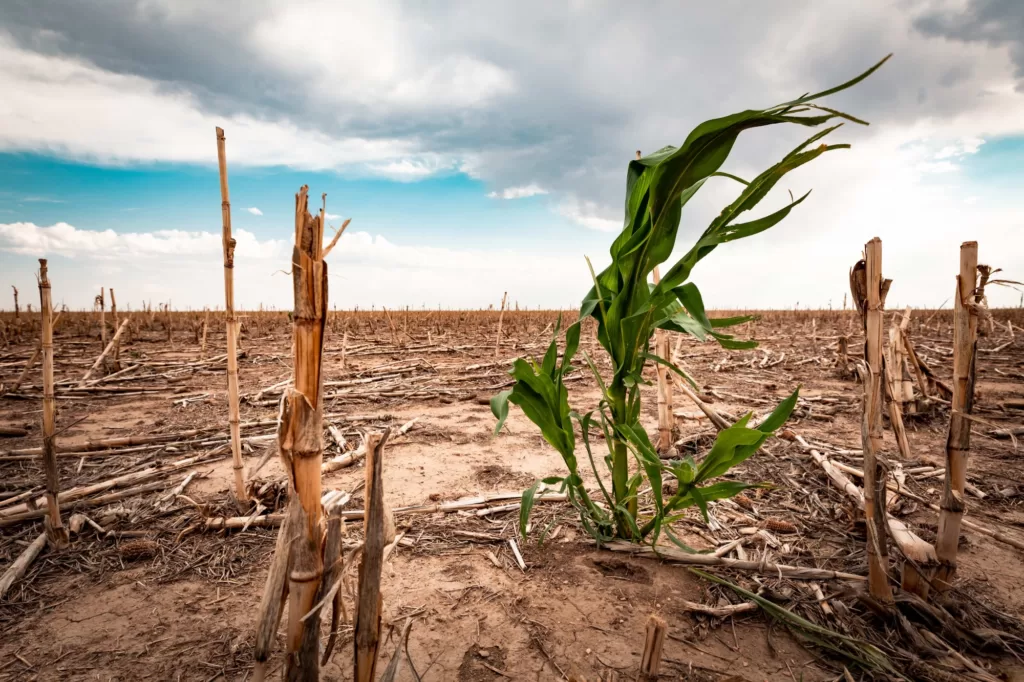Farming is an essential part of modern society and its importance cannot be overlooked. As climate change continues to have an increasing impact on weather patterns, farmers are forced to adapt their practices to ensure the long-term sustainability of their operations. As the effects of global warming become more severe, traditional farming methods become less reliable and a new set of strategies must be implemented to ensure the safety and prosperity of our food supply. In this article, we will explore some of the strategies that farmers are using to adapt to climate change and ensure that their operations remain sustainable in the future. We will look at how farmers are utilizing new technologies, such as precision agriculture and soil carbon sequestration, to ensure their crops remain healthy and productive. We will also discuss how farmers are diversifying their crops and adopting more sustainable practices to reduce their reliance on pesticides and other chemicals. Finally, we will look at how farmers are collaborating with local governments and other stakeholders to develop comprehensive strategies for climate adaptation.
Table of Contents
The Impact of Climate Change on Farming
Agriculture is a key component of the modern economy, providing food and other agricultural products to over two billion people worldwide. It is also a major contributor to greenhouse gas emissions, accounting for around 8% of total global emissions. While these emissions are not expected to rise significantly in the short term, their impact will increase significantly in the long term as a result of climate change. Rising temperatures and changing precipitation patterns will have serious implications for farmers. Droughts and floods will become more frequent and intense, reducing the quality and quantity of crop yields. Crop pests and other pests will also become more common, resulting in a higher need for pesticides and other chemicals that can have negative long-term side effects on the environment. Additionally, soil will become drier and less fertile, reducing its ability to produce high-quality crops. All of these factors will have a significant impact on the global food supply, and must be addressed by farmers if we are to maintain our current level of food security.
Utilizing Technology to Adapt to Climate Change
Precision agriculture is a technology that allows farmers to monitor and manage their fields with a high level of accuracy. This technology relies on computer software and sensors that collect data on soil quality and crop health. These sensors are often installed in agricultural drones to allow farmers to monitor their fields from the air. Data collected by precision agriculture sensors can be used to inform farming practices and make adjustments as needed to ensure crops receive the right amount of nutrients and water to remain healthy and productive. Additionally, this data can be used to predict how the weather will impact crop yields and inform farmers how many resources they will need to maintain their operations. This technology is an essential tool for adapting to climate change as it allows farmers to maintain high levels of productivity in spite of changing weather patterns. Farmers can utilize precision agriculture sensors to monitor the soil quality in their fields and identify regions that are becoming too dry or too wet. This information can be used to adjust irrigation practices on the field level and ensure that certain regions receive more water if necessary. Precision agriculture also allows farmers to monitor soil pH levels, nutrient levels, and soil temperature, allowing them to identify regions that require additional nutrients or are affected by pests and diseases. This data can be used to determine which pesticides are necessary to treat specific regions of the crop, helping to reduce the amount of chemicals used in farming.
Diversifying Crops and Sustainable Practices
Farmers are increasingly diversifying their crops to ensure their operations remain sustainable in the midst of climate change. This strategy is already used by many organic farmers and is now receiving more attention from conventional growers as well. Diversifying crops reduces reliance on individual crops for revenue and protects operations from weather-related shocks. Crops are regularly shifting their production areas as a result of climate change, meaning that many producers are struggling to find new areas to grow their crops. Thus, many farmers are expanding to new areas to continue growing the same crops they have always farmed, but are having to search for new areas to do so. Climate scientists expect that many areas currently used for agriculture will become unsuitable for farming as the climate changes, forcing farmers to look for new areas to grow the same types of crops. This method of coping with climate change is not a sustainable long-term strategy, but it can be helpful in the short term as farmers search for new areas to grow their current crop varieties.
Collaborating with Local Governments and Stakeholders
Farmers are increasingly collaborating with local governments and other stakeholders to develop comprehensive strategies for climate adaptation. As previously mentioned, many farmers are diversifying their crops and expanding their operations to ensure that they have a viable source of income in all areas of their operation. As a result, farmers are becoming increasingly reliant on access to water and other public resources. Collaborating with local governments and other stakeholders allows farmers to plan their operations more effectively, ensuring that they have enough water, fertilizer, and other resources to operate their crops. This strategy also allows farmers to share information and resources with other farmers, reducing their reliance on private resources like groundwater wells. When farmers work with local governments to develop strategies for climate adaptation, they are often able to access funding and other resources to help improve their operations. Working with local governments to develop climate adaptation plans is not a short-term strategy, but it can significantly improve the long-term sustainability of many farming operations.
Conclusion: Adapting to Climate Change for a Sustainable Future
Many farmers are implementing new strategies to adapt to climate change and ensure the long-term sustainability of their operations. Precision agriculture allows farmers to monitor and manage their fields with a high level of accuracy, enabling them to identify regions that are becoming too dry or too wet and adjust their irrigation practices accordingly. This technology is an essential tool for adapting to climate change as it allows farmers to maintain high levels of productivity in spite of changing weather patterns. Farmers can also expand their operations to ensure that they have a viable source of income in all areas of their operation. This strategy allows farmers to reduce their reliance on private sources of water, fertilizer, and other resources and share information and resources with other farmers. Finally, farmers are increasingly collaborating with local governments and other stakeholders to develop comprehensive strategies for climate adaptation. These strategies help farmers plan their operations more effectively and access public resources like water.





